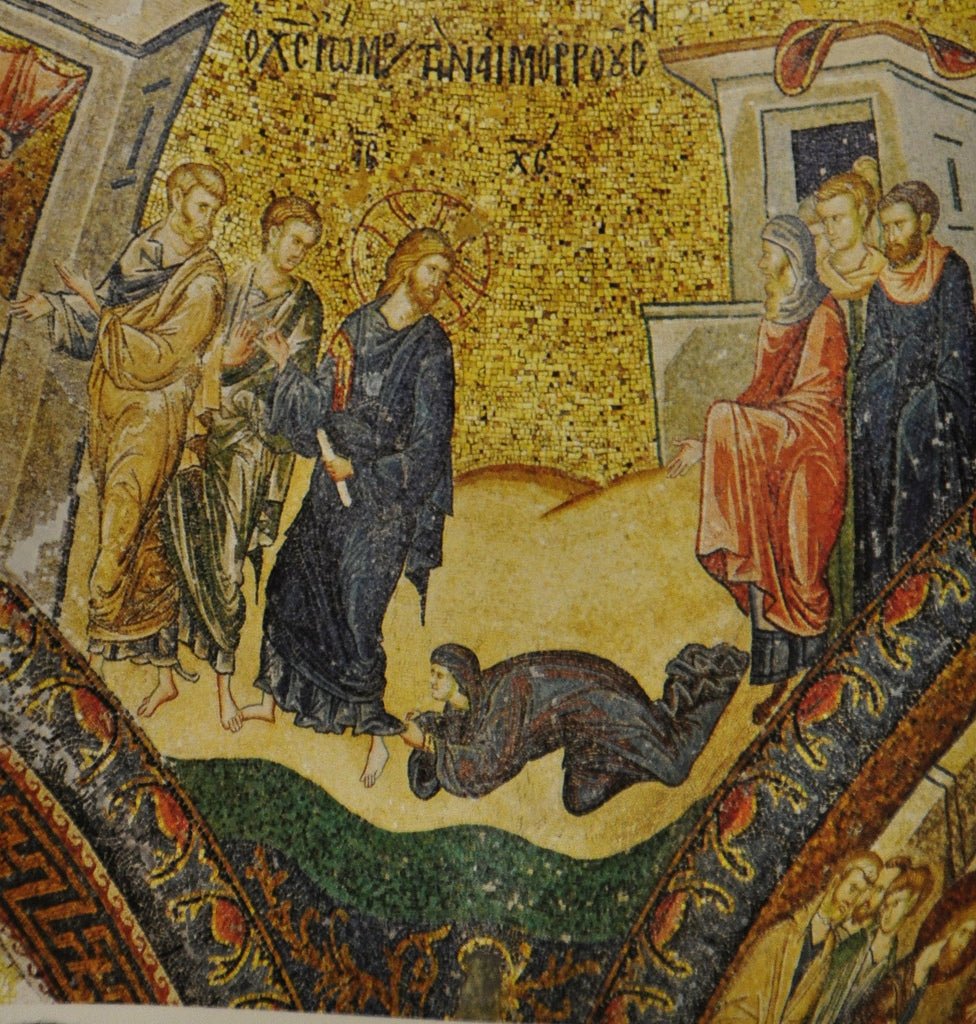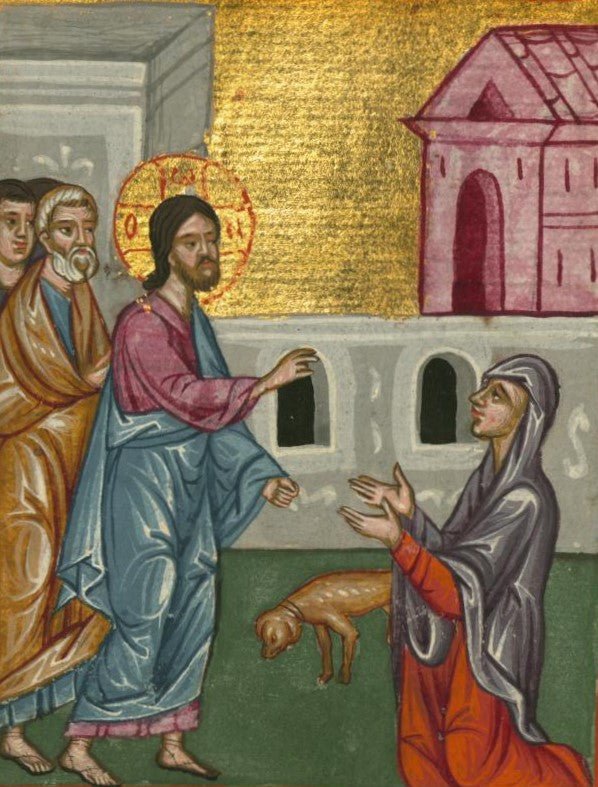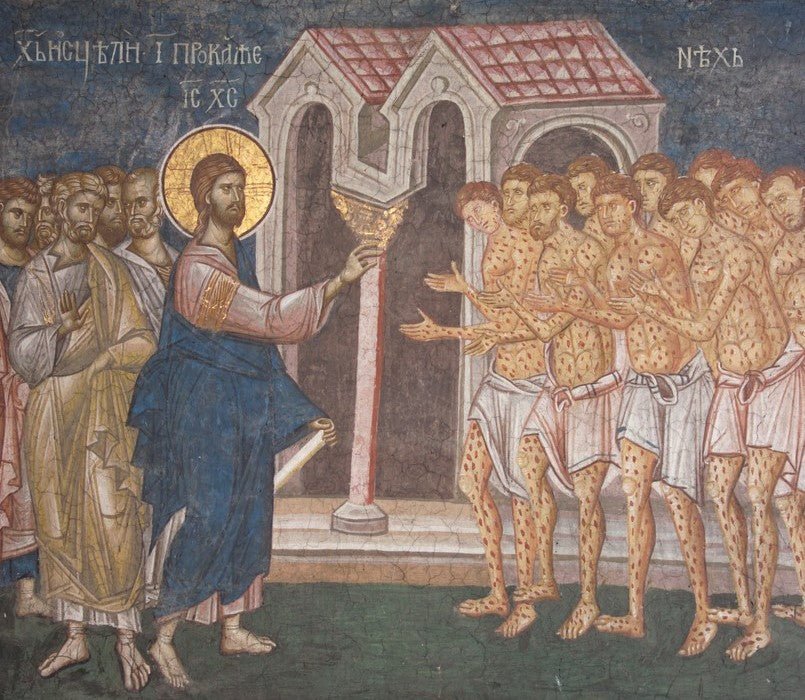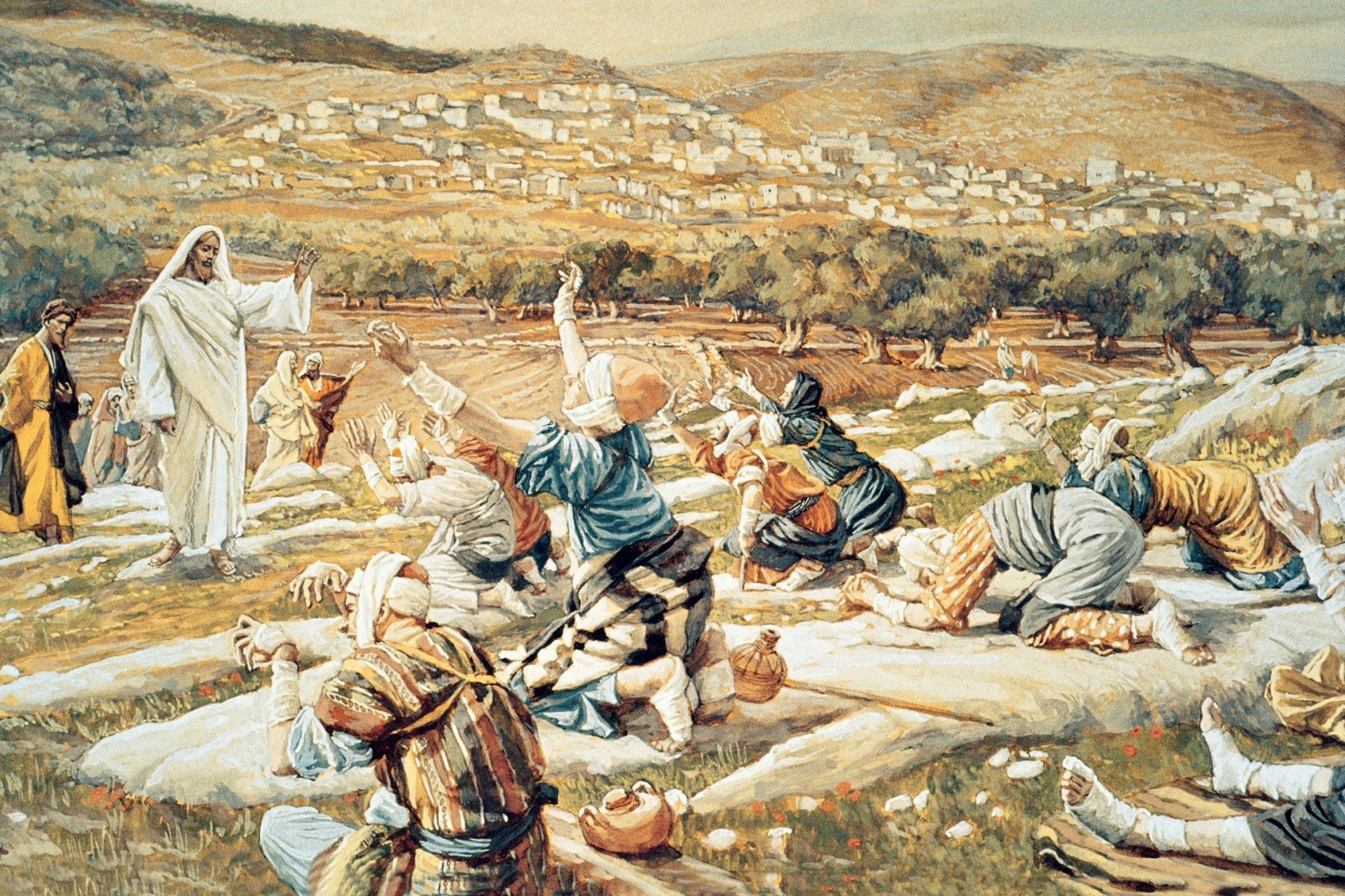Sermons & Homilies

In the city of Caesarea Philippi, which lay at the base of Mount Hermon, the fourth-century Ecclesiastical Historian Eusebius writes that there was a site of pilgrimage which consisted of a home and two bronze statues which sat outside its gates. One statue was of a woman kneeling with her arms raised in supplication and the second was of a man, clothed in a double cloak, standing and facing the woman with one arm stretched out towards her. The woman was she who had an issue of blood as narrated in the Gospels and the man was Christ.
Continue reading

Today’s Gospel passage invites us to reflect on the silence of God and the nature of our faith. Here we see a mother in grief over the plight of her demon-possessed daughter.
Continue reading

In its simplicity, even a child could tell us that the purpose of this account is the importance of thankfulness to God, but what is the importance of thankfulness? Why be thankful? Is it only a matter of politeness or good manners or a sign of a well-bred individual? Perhaps we think there is a social code that is important to keep, which amounts to my being upset if you do not thank me for something I have done for you. Even if these questions are worthy of consideration, the point in question is much deeper and has further-reaching effects.
Continue reading

Thankfulness is not first and foremost a matter of politeness, good manners, or a social code, but a spiritual act by which we commune with God and through which God also communicates with us.
Continue reading

Why have these stories been recorded? To grant us hope amidst our physical and spiritual struggles, weaknesses, passions, and sins. If our Merciful Lord sought out those who were afflicted without being directly asked, how much more will He come, in His own time, to us who seek Him out!
Continue reading

